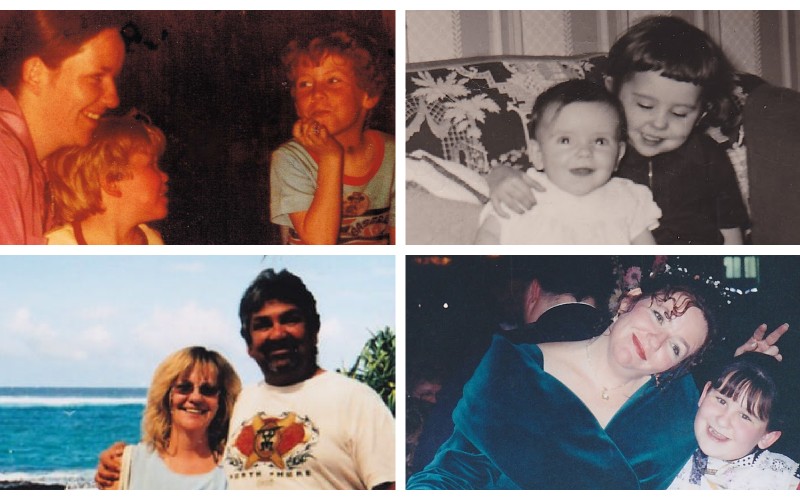Other Categories
Written by by Brenna Darazs
Note: I would like to say thank you to all healthcare providers and all men and women who work directly with patients for your tireless service in keeping us healthy and thriving. I believe most of you are dedicated, caring individuals who listen to your patients. I believe you want to do what is best for us and that we matter to you. I do not want you to feel attacked or judged. These are simply my own personal experiences and feelings. Thank you for not giving up on us.
February 1st began National Patient Recognition Week, an observance established in 1995 by one John O’Malley. It is a week that focuses on patient satisfaction and reflection of ways in which patients can be better served and for patients to actually see the care, value and dedication of health care providers. It is a chance for the healthcare field to reflect on and have earnest discourse about individual patient satisfaction, their stewardship of the patient community, and how they can improve upon and better that care.
First, let me say that I believe health care providers are doing many things right. In fact, without the life-saving efforts of my doctors and health team, I wouldn’t be here today. As a patient who has depended on doctors, nurses and many other healthcare workers for life-saving care, I am so grateful for their knowledge, compassion and determination to get me well. That said, there are some aspects of patient care that can be easily overlooked or dismissed. Emergency room doctors are on the front line of incidents of acute distress and trauma. We depend on them and their medical knowledge and expertise. I hold them in very high regard. For the most part, I have positive experiences with these doctors. But when we’re talking about C. diff, there are some things that could be improved upon.
The first time I went to the ER, my nurse was so kind and compassionate. I didn’t know what was wrong with me, and she absolutely made me feel like everything was going to be okay. But the doctor was different. I knew something was terribly wrong with me. The doctor mentioned the possibility of C. diff but said it was unlikely. Still, I readily agreed to a stool test. Then he flippantly replied not to bother unless my stool was completely liquid. He said if there were any solid pieces in it, they wouldn’t do the test. They would not do the test. I felt like I’d been slapped in the face. There was still some solid feces in my stool, I knew that. But the larger portion was liquid. How could they not test me? I remember telling him that it was all liquid, nothing firm. I lied to get that test done. Maybe he was following protocol, or maybe he didn’t have any direct experience with C. diff. Maybe he was trying to downplay the seriousness of my condition. I don’t know. What I do know is that I didn’t feel I was being listened to. He ordered a CT scan of my abdomen, and I felt some relief at that, but there was still a sense of isolation and distance. I was sent home with antibiotics “just in case” I had C. diff (the stool sample was being processed). I wasn’t given any literature or guidance on how to deal with Clostridium difficile. I had no inkling as to how contagious it was, how I could infect my entire family, how to disinfect and sanitize my home to keep from getting a recurrence. If C. diff was even suspected, surely every precaution would be taken to ensure the safety of the patient? I wouldn’t learn about this until much later.
Two weeks after my initial diagnosis, my surgeon called. She actually video-called. I was propped up with pillows, laying in bed, feeling like death warmed over. She greeted me with a cheery hello and asked how I was doing. I said, “How does it look like I’m doing?”. It took her two weeks to follow-up with me. Two weeks. After being infected during a surgery that she performed, she couldn’t take the time to call me to see if I was okay? She said yes, of course she’d heard I had contracted C. diff, but she’d never had a patient in eighteen years of performing hysterectomies catch C. diff from intravenous antibiotics. I said, “Well, you have now.” She just smiled. I just laid there, feeling frustrated and alone. There was nothing more to say. She ended the call with, “Drink plenty of fluids and get lots of rest!”, like I had a bad cold and that would fix everything. I smiled weakly and said goodbye. I don’t recall ever speaking with her again, even when the C. diff came back the third time. I was afloat, and I was going to have to fix this on my own, that I knew. I never again went back to that doctor or that hospital.
In describing these incidents, I think what I’d like health care providers and those who come in contact with patients on a regular basis to know is really quite simple. Please take us seriously. Please don’t dismiss our symptoms, our fears or our questions. Please don’t treat suspected but not-yet-confirmed cases of C. diff as just a case of bad diarrhea. Please treat us with the care and compassion that you would with any other life-threatening illness. C diff. is a debilitating infectious disease, and yet there is a tendency to treat it as if it’s nothing more than a glorified stomach flu. Because certain symptoms of C. diff mimic the flu, some patients are either at best condescended to and at worst ignored completely. There is no group of people that this illness does not touch, and it’s becoming more prevalent among healthy adults. It can be embarrassing to reach out for care and consequently be dismissed as overreacting or exaggerating.
We need you, doctors and nurses and those with the medical knowledge and expertise, to diagnose and treat us. We need you to be our advocate, not our adversary. I think the care and compassion are there, I really do. Many people get into healthcare to actually help people. And I thank them for that. I just ask that any patient who suspects and presents with the symptoms of a C. diff infection be taken as seriously as that person who’s been wheeled in on a gurney. We need you to save us, and you can’t do that if you don’t believe we are sick.




Leave a Reply